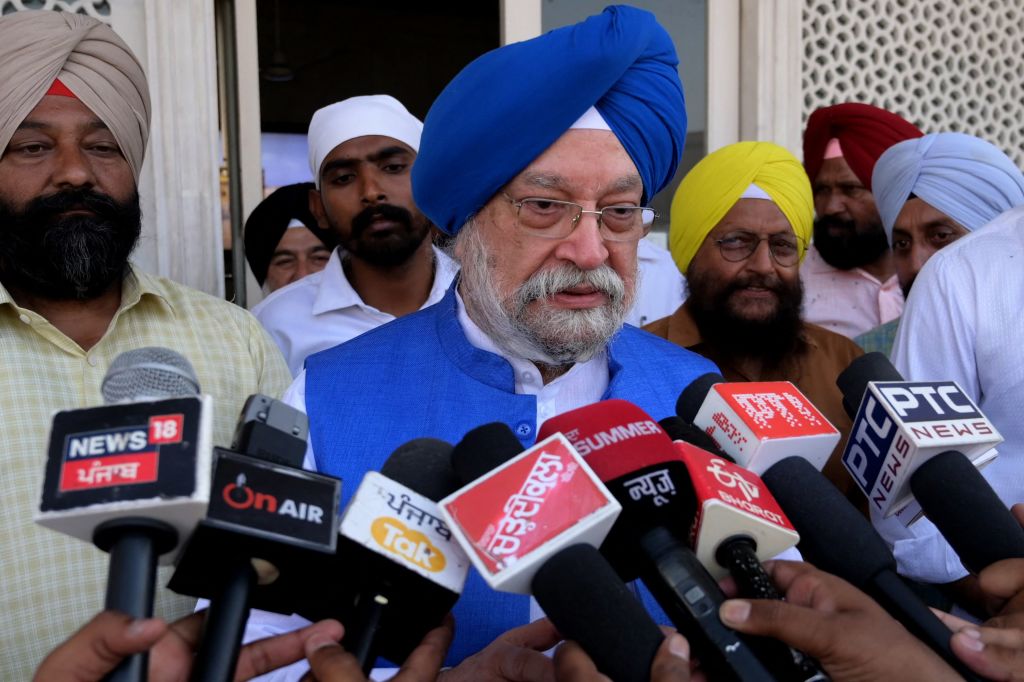- Monday, April 07, 2025
The South Asian country’s energy consumption is surging three times faster than the global average, he said.

By: Shubham Ghosh
INDIA has not allowed to undermine or dilute its commitment to sustainability and green energy transition, despite challenges it has faced due to geopolitical events lately, said the country’s petroleum minister Hardeep Singh Puri at the ongoing World Economic Forum (WEF) in Davos, Switzerland.
“Under PM Modi’s leadership, India’s ascent to a USD 4 trillion (£3.15 trillion) economy is fueled by a robust growth rate of 7.2-7.3 per cent. Our energy consumption is surging three times faster than the global average and 25 per cent of the global energy demand growth in the next 20 years will come from India, as it powers ahead towards a Viksit Bharat (developed India),” he said.
India, the world’s third-biggest oil importer and consumer, is dependent on crude oil from various sources in the global market to meet its domestic demand.
Read: Vibrant Gujarat business summit concludes, MoUs worth £249b inked
Under PM @narendramodi Ji’s leadership, India's ascent to a $4 trillion economy is fueled by a robust growth rate of 7.2-7.3%.
Our energy consumption is surging three times faster than the global average, and 25% of the global energy demand growth in the next 20 years will come… pic.twitter.com/EeWl73pjbd
— Hardeep Singh Puri (@HardeepSPuri) January 16, 2024
“In these new challenges which arise and how we face them. There is a global commitment, we have not allowed our domestic preoccupations in any way undermine or dilute our commitment to sustainability,” Puri said at a session themed ‘Energy amid Rivalry’.
Read: Hinduja Group’s Ashok Leyland to invest over £113m in Tamil Nadu over 3-5 years
“Changes that are taking place in the world, and we are facing multiple crises. For a country like India, which now has I think the largest population in the world, it requires a transition to sustainability. Without it, anyway, jeopardizing or undermining the need to deliver basic welfare to a large and growing population.”
He contended that India’s economy being close to $4 trillion and the fastest growing large economy, has a lot of developmental challenges.
“Today what happens in India is important for the rest of the world…all these new challenges that we have to face, we have to face them pragmatically. I say this not to provoke anyone, but to just mention. If India had chosen in that point of time not to be pragmatic, we would have had a situation where oil would have gone beyond USD 200 dollars (£158). Why? We import 85 per cent of our crude, and we have to deal with the issues of availability, affordability, and sustainability. If India had allowed itself to be put into a situation where we were to draw on the same sources.”
Other parts of the world didn’t take the kind of position India took, and the government was “acutely conscious” of it, he noted.
“In these new challenges which arise and how we face them. There is a global commitment, we have not allowed our domestic preoccupations in any way undermine or dilute our commitment to sustainability,” he noted, referring to India’s biofuel and green hydrogen programme.
India committed to an ambitious five-part “Panchamrit” pledge at COP26, held in 2021. They included reaching 500 GW of non-fossil electricity capacity, generating half of all energy requirements from renewables, and reducing emissions by a billion tonnes by 2030.
India also aims to reduce the emissions intensity of GDP by 45 per cent.
Finally, India commits to net-zero emissions by 2070.
(With ANI inputs)